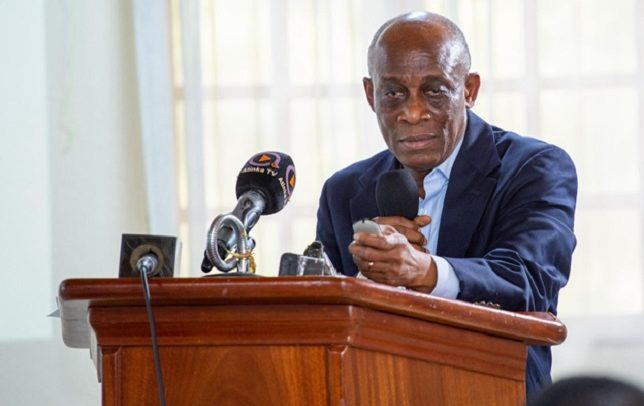Seth Terkper
Former Finance Minister, Seth Terkper, has advised the government to focus on making the country’s four major revenue streams effective to produce the needed revenue for economic development and sustainability.
The revenue handles are income tax [personal and corporate], Value Added Tax (VAT), petroleum tax, and import duty.
“As a developing/lower middle-income country, these are the four core taxes, which are the pillars of our revenue regime, and making them work would be to our gain, and help us avoid going back for external support periodically” he said.
Mr Terkper said in an interview with the Ghana News Agency (GNA) on Wednesday, February 28, after he delivered a speech at a public dialogue organised by the PFM Tax Africa Network.
The dialogue was on Ghana’s ongoing US$3 billion loan-support programme with the International Monetary Fund (IMF).
“If you take the whole of the about 15 levies we have, they’re not contributing more than six per cent to Gross Domestic Product (GDP), and are distorting the primary, which hurts businesses, even the more,” he said.
He urged the government to scrap the Electronic Transactions Levy (E-levy), and not introduce the 15 per cent VAT on electricity and emission tax, expressing confidence that doing so would engender compliance in existing tax handles.
“The levies are distortive, and encouraging evasion and avoidance, so let’s clear them and focus on the country’s pillar tax regimes,” the former Finance Minister said.
He expressed concern, saying, “For example, Integrated Tax Administration System (ITAS) – a digitisation measure that can help us expand the tax base has been there for more than seven years, and we’ve not been able to introduce a domestic IT system for the Ghana Revenue Authority when the plan and World Bank funding was there.”
He also called for pragmatic efforts in having a debt management policy that would discourage the government from borrowing beyond certain threshold and ensure timely repayment.
On the way forward in the implementation of the US$3bn loan-support programme, IMF, he said Ghana must be steadfast in policy and reform implementation.
That, the Fund said should include measures that would shore up revenue, and reduce expenditure, to ensure durable restoration of macroeconomic stability and debt sustainability.
A Business Desk Report


